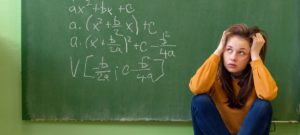Answer to Question #203175 in Real Analysis for Rajkumar
Prove that the set of integers is countable.
An infinite set is countable if and only if it is possible to list the elements of the set in a sequence.
To list the integers in a sequence 0,-1,1,-2,2….
A function f from the set of natural numbers to the set of integers defined by
"f(n)=\\left\\{\\begin{matrix}\n\n(n-1)\/2, \\; n \\;is\\;odd & \\\\ \n\nn\/2, \\; n \\;is \\; even& \n\n\\end{matrix}\\right."
To show that this function is countable.
That is to prove that the function is a bijection.
(1) To prove that f is injective:
Let m and n be two even numbers, then
"f(m) = \\frac{m}{2} \\\\\n\nf(n) = \\frac{n}{2} \\\\\n\nf(m) = f(n) \\\\\n\n\\frac{m}{2} = \\frac{n}{2} \\\\\n\nm=n"
Therefore f is injective.
(2) To prove that f is surjective:
Let t be negative then t appears even position in the sequence
"f(2k)= -\\frac{2k}{2}=t"
with t= -k
This implies that for every negative value of t in Z there is a natural number 2k.
Let t be positive then t appears odd position in the sequence
"f(2k-1) = \\frac{2k-1-1}{2}=\\frac{2k-2}{2}=t"
with t=k
This implies that for every positive value t in Z there is a natural number 2k-1.
Therefore f is surjective.
Then f is both injective and surjective implies that f is bijection.
There the set of integers is countable.








Comments
Leave a comment